Redouane Aouameur is one of the pioneers of metal in Algeria. With „Alif“, the new album of his band LELAHELL, he has now released a death metal album that doesn’t have to hide from any European or American production. Which obstacles delayed the release, but also, as it is about the metal in Algeria in general, was the subject of our interview with Aouameur.

„Alif“ originally was planned to be released in 2016. Why did it take until now to publish the album?
We had some problems in the productions process. The first recording version of the album was finished in end 2016, but we were forced to record the guitars again because there was a problem on them. The album was also remixed, because we haven’t chose the right producer. Working by distance is always more difficult than in reality; it takes more time to acheive something that satisfy you .
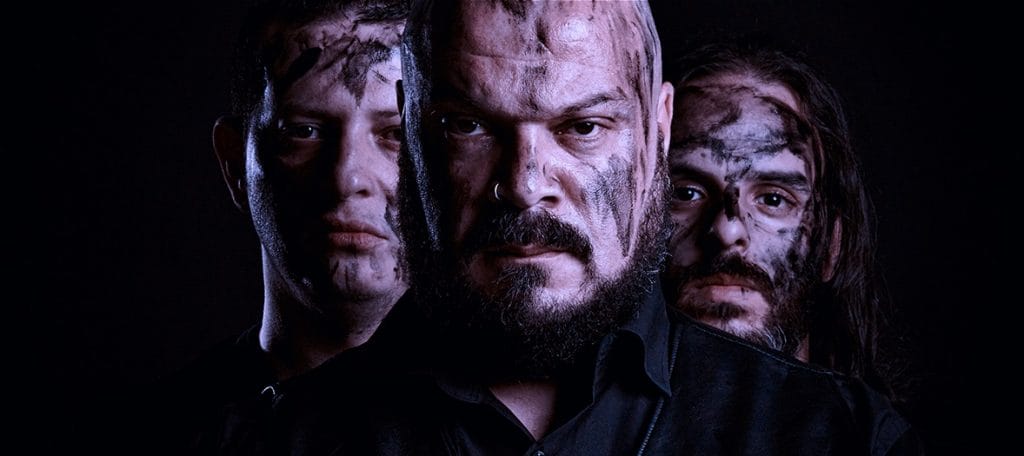
Some years ago, you started a crowdfunding-campain to get some financial help for the production of „Alif“. Did it run as you expected, so, was that campaing a success, are you satisfied?
We got 12% of the total requested amount but we are vey satisfied, you know why? Because we learned the most important thing you need to run such a campaign, you need to build a good fanbase and be in constant contact with your followers!
Did you get the support mainly from your homecountry, or from people from europe/america/other contries?
We got support mainly from France, which is the second area of LELAHELL after our homeland. In Algeria there is a problem with e-payement, so people didn’t have the opportunity to send their contribution via Indiegogo. To remedy to that, we made a crowdfunding live in Algiers and poeple had chance to contribute to that campaign by buying our merchandising during that concert and it was a very good amount!
Would you do it that way once again?
To make a good crowdfunding campain you must have a good super fanbase, and we are working on that, so next time we’ll do it better!
Lets talk about the album itself: It’s entitled „Alif“ – what does that mean?
„Alif“ is the first letter of the Arabic alphabet. In Arabic calligraphy we use it as main reference to determine the size of the next characters. We choose this name because this album will be the main musical reference of the next upcoming releases.
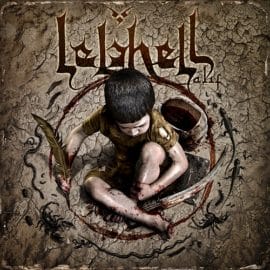 What’s the idea behind the artwork – what can we see here?
What’s the idea behind the artwork – what can we see here?
The cover artwork is a courtesy of German artist, Björn Gooßes of Killustrations (Dew Scented, Aborted, Sodom, …). When LELAHELL got in touch regarding a possible artwork, Bjorn knew this would be something special.
I approached him with a quite elaborate lyrical concept about a person named Abderrahmane and his tale of woe. He had to convert that into a striking image and he came up with Abderrahmane sitting on desert soil, while drawing a circle of blood around him in order to protect himself from danger. I think it turned out to be a quite unusual image and captures the feeling we wants to evoke with our music
Is there a context between artwork, albumtitle and lyrics?
Each LELAHELL release is conceptually linked to the character of Abderrahmane, yet focusing on another evolutionary step—another chapter in his own book. In the lyrics of our first EP „Al Intihar“ Abderrahmane is tired of his own life full of constraints, so he commits suicide. Our first album „Al Insane… the (Re)Birth of Aberrahmane“ deals with his rebirth. Our new album „Alif“ is now focusing on Abderrahmane’s first steps in his new life, just like a child learning to speak, walk, learning about the world around him. Yet this is full of foes and fears, that’s why Abderrahmane needs to save himself from those dangers.
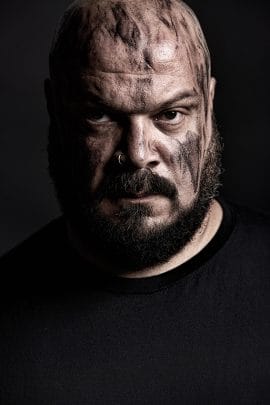 Your lyrics are in arabic language – why did you decide to go for arabic lyrics, what means, that all people outside the arabic world won’t understand the lyrics?
Your lyrics are in arabic language – why did you decide to go for arabic lyrics, what means, that all people outside the arabic world won’t understand the lyrics?
Writing lyrics in arabic is a personal choice, it contribute to give that original touch to the sound of LELAHELL because in our language there are many letters and words that sounds differently than latin language or others. If you wanna understand the meaning of some lyrics, just drop us some line and we’ll translate them for you!
Do you intentionally try to put an arabic touch into your riffing, or does that just happen as a result of your musical background?
In our childhood all of us listened to some local and traditional music on the radio, so for us it is completely natural to add a subtle of that in our music. Not that much, because we play death metal!
LELAHELL is more or less a one-man-project right now – at least you’ve recorded all instruments (besides drums) yourself. Why?
I recorded all instruments because when you write all the songs and all the parts of the music you always want them to sound perfectly like you have imagined them.
For the record, you recruited the german drummer Hannes Grossmann. Why him?
In the beginning of the writing process of „Alif“ I was searching for a drummer for recording that album, I contacted many drummers and the one that really caught my attention was Hannes Grossmann, because he is very talented, very professional and more he has something that must of today drummers don’t have any more is taking artistic risks, he also plays extreme metal and he can play other things and he is able to do that!
How did the collaboration work? Could you tell us a bit about how (and where) you worked together?
First, we were going to work by internet, but I decided to go to Germany in his studio (Mordor Sound Studio) to record the drums with him to give the human interaction feeling to that album, and it was a very good decision. Hannes is a great guy! The communication was very good; just listen to the result!
Did you record the other instruments on your own, and who did the mix/master of the album?
The bass, all guitars and vocals were recorded in my own studio (Fermata Studio) at Algiers. The drums were recorded in Germany at Mordor Sound Studio in Veitsbronn (Hannes Grossmanns Studio). After the recording process the first mix attempt was done by cutfire studio from Italy, but the result wasn’t as good as we expected. So we decided to contact the Wieslawsky-brothers for that job and the result was amazing! It was the best choice for that album.
When you work on the production of an album the most difficult part is to find the right person that have the same direction as your music, and we found it!
Are you planning to play live as well, so is the idea to make LELAHELL a full band again?
LELAHELL is a full band since 2012. To promote that album, we have a release party in Algiers in a big park called dounia parc the 18th august. In November we are touring two weeks in Europe to promote „Alif“, starting from Spain, to France, Italy, Slovenia, Poland, Czech Republic, Slovakia and Hungary
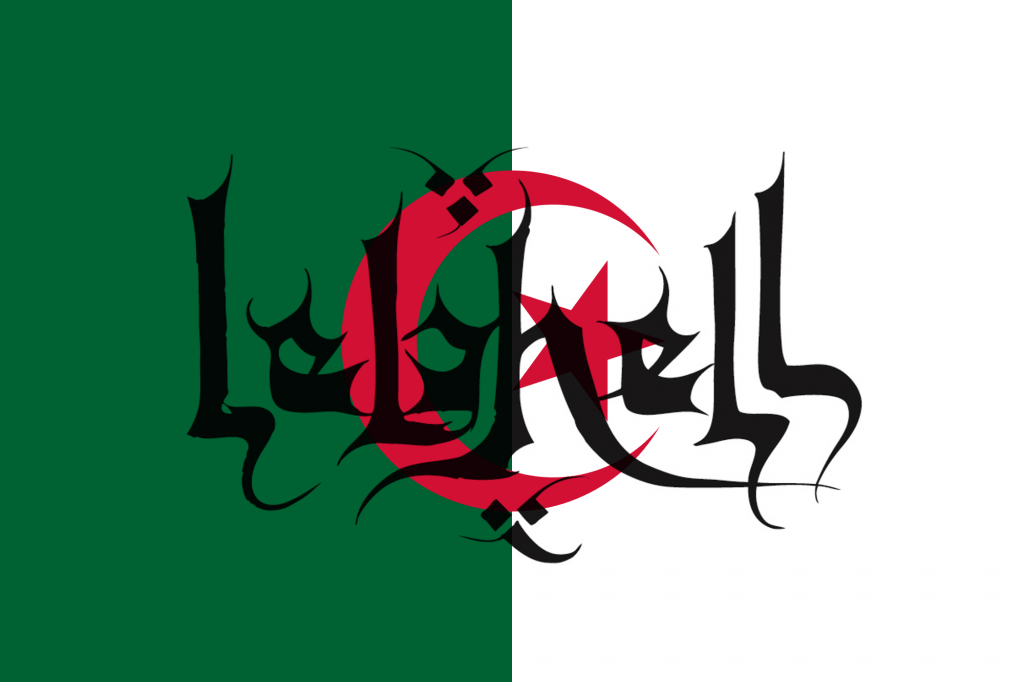
What about metal in algeria in general – would there even be the possibility to play live?
There is a big problem in venues, most of them are cinema theaters that belong tot he governement, so they don’t let us to play metal there! But we sometimes play outdoors, on in some places. In general we play one or two times per year only!
You’ve been an active metal musician since the early/mid-90’s. How has the metal scene in Algeria evolved over the years?
I think that the bands of today don’t take benefit of the actual situation and all the facilities. The musicians are lazier and want to publish photos and demos in Facebook. Write albums and record them properly!
Do metal fans in Algeria buy CDs or do they mostly download the music form the internet?
Let‘s say 90% download music from the internet and others buy some UG stuffs or make trades. We can’t say it’s bad because they don’t have access to Cds, there are no distributors in our Area.
So, as a band do you have any support (financial or other forms) from the scene?
> In the early days we got support from our government they were organizing shows are helping us to spread our music. But actually we don’t have any support just few people who buy some merch and Cds in the concerts.
What does it mean to be a metalhead in Algeria – what impact does it have on your everyday life / social life to be a metalhead? How do „normal“ people react to you as a metalhead?
I think being a metal heads is the same everywhere . ‘Normal’ people will always judge because you wear black shirts or listen to what they call it “Noise”. They will categorize you as „devil worshippers“, „violent people“, „disrespectful“ and „criminals“.
What does your family think about you being in a metal band?
Since the beginning I always got support from my family. I think that it is the most important thing for a musician, to be supported by relatives!!
What about metal in algeria today – Is it accepted (publicly / socially / culturally) to openly show your love to metal by means of a special lifestyle or style of clothing, for example long hair and band shirts?
It is not strict as you imagine, we can wear metal shirts and have longs hairs, without being too much provocative! No shirts with inverted crosses or naked girls, of course …
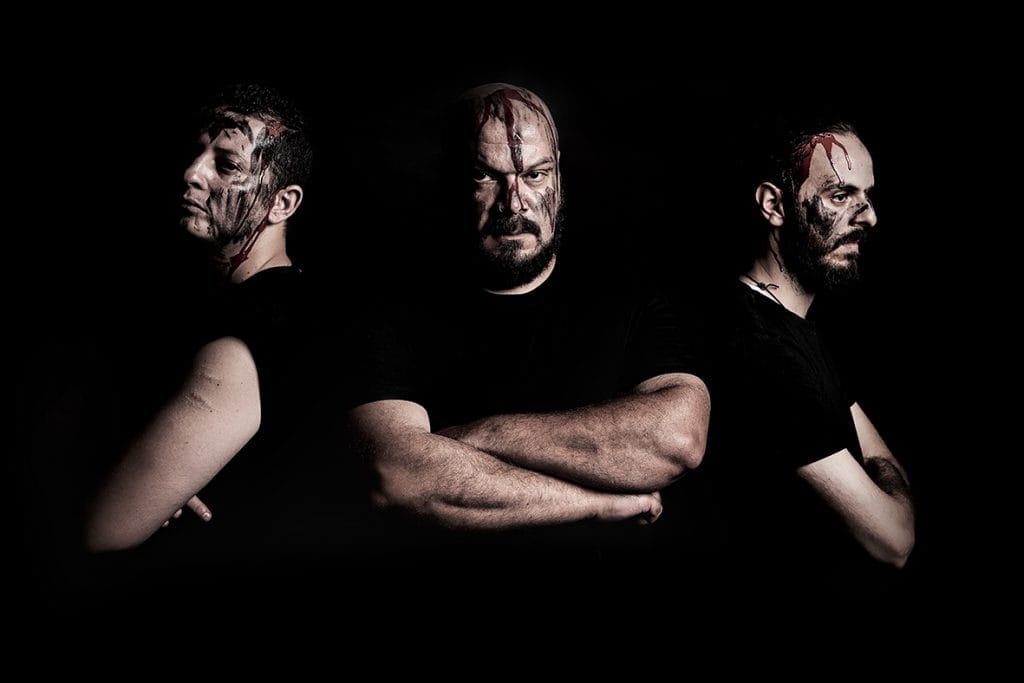
What about the scene? Is there actually an active, vivid metal scene existing in Algeria, with bars, clubs, concerts, festivals, and shops offering metal merchandise?
In 2018, things have changed. There are some new promising bands that were formed and have made some interesting releases, there are also more concerts but not enough, we are trying to change things with government to get more access to the venues, and why not create a big international festival!
Thank you for the interview! Please let us do a short brainstorming in the end of this interview. What comes in your mind first reading the following terms:
Germany: DE
the last album you gave a listen (and liked it): Immortal ‘Northern Chaos Gods‘
Donald Trump: Us bullshit !
The end of SLAYER: Is this the really end of Slayer?
LELAHELL in 10 years: 5 Albums, Metalblade, Headlining big festivals!
Once again thanks for your time. The last words are yours – is there anything left you want to tell our readers?
Thanks a lot for that interview, support LELAHELL or die!
The text in italics originally comes from the 2016 interview contained exclusively in the book on the series „Metallisierte Welt – auf den Spuren einer Subkultur“.
